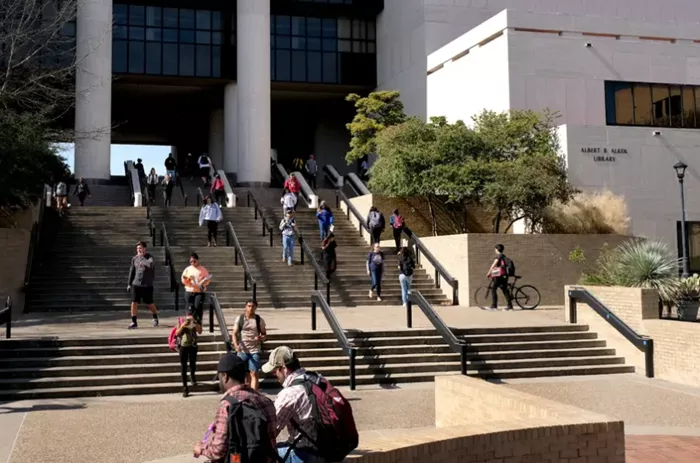Immigrant Students Face Financial Aid Challenges Due to FAFSA Glitch.
Students from immigrant families are missing out on state grant money for college due to a glitch in the Free Application for Federal Student Aid (FAFSA), confirming concerns raised earlier this year.
The updated FAFSA system does not allow parents without a Social Security number to enter their financial information online. This issue forced affected students to wait months for the U.S. Education Department to create a workaround, delaying their ability to complete the form.
In Texas, state financial aid is awarded on a first-come, first-serve basis. As a result, students from immigrant families found themselves at the back of the line for financial assistance this year.
Counselors in Texas who assist students with financial aid applications report that college-bound individuals from mixed immigration status households received less aid than they qualified for. Universities do not track the immigration status of students’ households, making it difficult to determine how many were impacted.
“These students are eligible to complete the FAFSA; they are U.S. citizens,” said Andrea Harper from the college access group Breakthrough Central Texas. “Because of these glitches, they were placed at the back of the line, causing them to lose out on aid. This will have long-term effects on these students, perhaps for their entire lives.”
While students can still access federal Pell Grant funds regardless of their application submission date, state grant money is essential for covering costs beyond federal aid. This support helps students pay for housing, transportation, books, and other expenses. The average Texas grant is about $5,000 per student for the academic year.
Karla Buenaventura Esquina had planned her journey from her South Austin home to Texas State University after attending a campus tour last year. She envisioned becoming the first in her family to graduate from college and hoped to be a role model for her younger brother.
However, financial aid issues derailed her plans. Despite numerous attempts, Esquina could not successfully submit her FAFSA until late spring. By then, it was too late; Texas State’s financial aid office informed her that while she was eligible for the Texas grant, funding had run out before her application was processed.
Esquina enrolled at Austin Community College instead, where she qualifies for free tuition. She plans to work as a barista to save money and aims to transfer to Texas State after completing her core classes.
“At first, it was hard. I wanted to go to a university and experience something new,” Esquina said. “But I don’t want to burden my parents with the high costs of a university.”
Colleges like Texas State, Prairie View A&M University, the University of Texas at Austin, and the University of North Texas were unable to provide financial aid to students from immigrant families due to depleted state grant funds. These institutions did not respond to requests for comments.
Sara Urquidez, a college access expert, predicts that the issues with the new FAFSA will lead to significant enrollment declines this year, particularly affecting students from immigrant families.
“We will see that many students, despite their efforts to attend a four-year institution, will not be able to make it work financially,” Urquidez said. She is the executive director of the Academic Success Program, a nonprofit that supports high school students in Dallas, Houston, and College Station.
Related topics:
- Claims of Immigrants Eating Pets Are Nonsense That Divide Americans
- Putin Increases Visa-Free Access for Georgians in Russia
- Can a U.S. Citizen Partner Help with an Expiring H-1B Visa?


